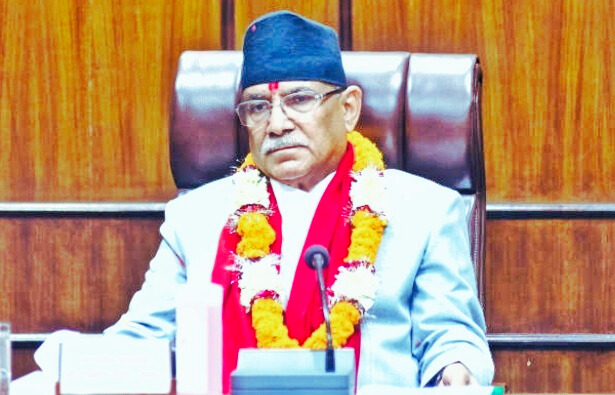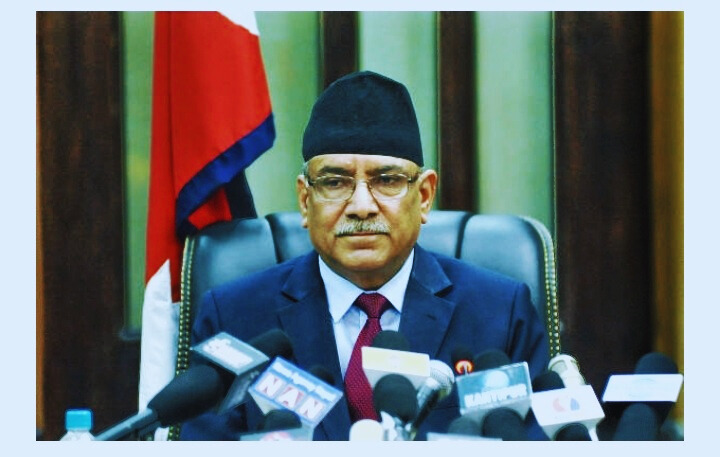Nepal PM Prachanda Wins Vote of Confidence Amidst Opposition Boycott
Kathmandu, May 20, 2024 Nepalese Prime Minister Pushpa Kamal Dahal, popularly known as Prachanda, secured a vote of confidence in Parliament on Monday, marking the fourth such vote in his 18-month tenure. The session was marked by a boycott from the main opposition party, the Nepali Congress, which also staged protests against Deputy Prime Minister and Home Minister Rabi Lamichhane, accusing him of misappropriation of cooperative funds.
A Contentious Parliamentary Session

The voting process, held in the House of Representatives (HoR), saw 157 members casting their votes in favor of PM Prachanda, out of 158 participating lawmakers. The 275-member House requires a minimum of 138 votes for a motion of confidence to pass. Despite the significant support, the session was tumultuous due to the opposition’s vocal protests and eventual boycott.
The Nepali Congress’s decision to abstain from voting was rooted in their demand for a parliamentary probe into allegations against Lamichhane. These allegations of fund misappropriation have cast a shadow over the current administration, causing delays and disruptions in parliamentary proceedings. pm prachanda
Coalition Dynamics and Political Maneuvering
The vote of confidence was necessitated by the withdrawal of support from the Janata Samajbadi Party (JSP), a key coalition partner, just a week prior. This move by the JSP came as a significant blow to PM Prachanda coalition, triggering the constitutional requirement for the Prime Minister to seek a fresh vote of confidence.
This recent political maneuver is part of a series of confidence votes that have punctuated Prachanda’s leadership since he took office in December 2022. Each vote reflects the fragile nature of coalition politics in Nepal, where shifting alliances and political strategies frequently challenge government stability.
Prachanda’s Political Journey

Prachanda, a former guerilla leader and a prominent figure in Nepal’s Maoist movement, heads the Communist Party of Nepal (Maoist Centre), the third-largest party in the HoR. His political journey from a revolutionary leader to the head of the government has been marked by both significant achievements and ongoing challenges.
His tenure has been characterized by efforts to maintain coalition unity amidst Nepal’s complex political landscape. The current scenario, with repeated votes of confidence, underscores the difficulties of governing through coalition politics where trust and support are continually negotiated.
Opposition’s Demands and Future Implications
The opposition, particularly the Nepali Congress, has been persistent in its demands for accountability and transparency, especially concerning the allegations against Lamichhane. Their boycott of the vote and the subsequent protests highlight a broader discontent with the current administration’s handling of corruption allegations.
The demand for a parliamentary probe into Lamichhane’s actions reflects the opposition’s strategy to hold the government accountable and to challenge its credibility. This ongoing tension between the government and the opposition is likely to influence future parliamentary sessions and could lead to further political instability.
Conclusion
Prime Minister Prachanda’s latest victory in the vote of confidence is a testament to his ability to navigate the treacherous waters of coalition politics. However, the ongoing allegations against key members of his administration and the persistent opposition protests indicate that his government will continue to face significant challenges.
As Nepal moves forward, the political landscape remains dynamic, with coalition partners and opposition parties playing critical roles in shaping the country’s governance. Prachanda’s ability to maintain support and address corruption allegations will be crucial in determining the stability and effectiveness of his administration.
This recent vote of confidence, amidst a backdrop of political protests and demands for greater accountability, underscores the complexities of governing in a coalition-driven parliamentary system. The coming months will be critical for Prachanda as he seeks to solidify his leadership and navigate the challenges posed by both allies and adversaries within Nepal’s vibrant political arena.

